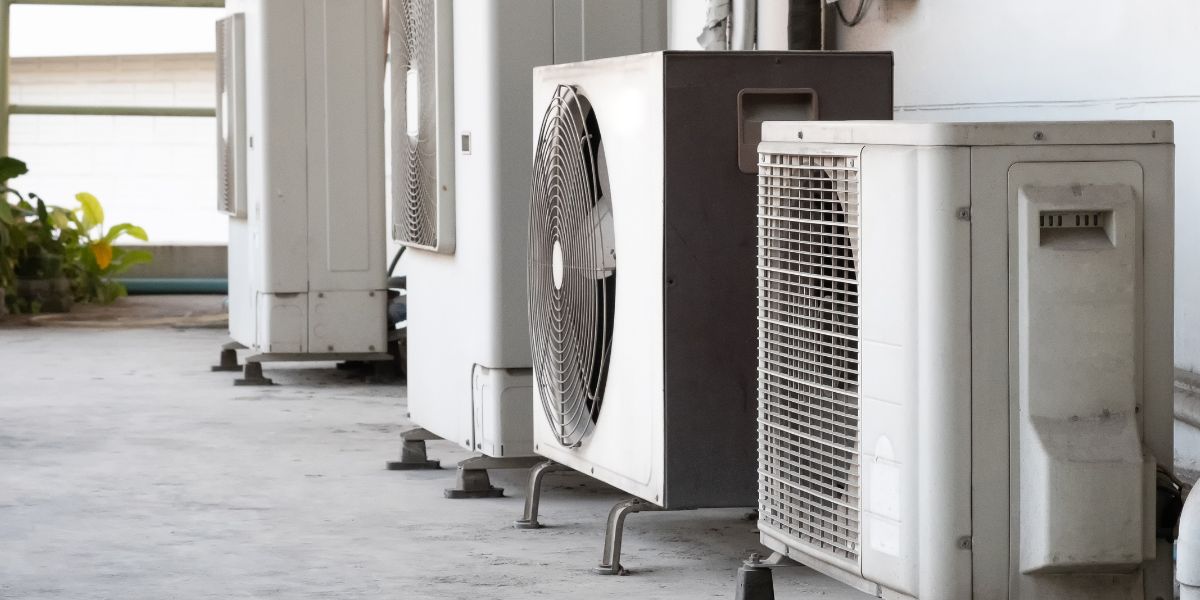Kapanlagi.com - When we enjoy the cool air from the AC at home or in a vehicle, there is one component that plays a very important role behind that comfort: the AC compressor. Often referred to as the "heart" of the air conditioning system, this compressor has a crucial task in creating a comfortable atmosphere, especially when hot weather strikes.
But how much do we know about the function and workings of this AC compressor? Let’s dive deeper to understand its important role, how it works, and various other interesting aspects related to the AC compressor.
Get ready to discover the secrets behind the coolness we enjoy every day, check out the information below sourced by Kapanlagi.com from various sources, Friday (13/12).
1. Definition and Main Role of the AC Compressor
The AC compressor is an essential component in the cooling system that not only pumps refrigerant gas but also changes the pressure and temperature of the gas to create a cool atmosphere.
Its tasks include converting refrigerant gas from low pressure to high pressure, increasing temperature, and regulating refrigerant flow. The compressor also ensures the phase change of the refrigerant and maintains pressure for cooling efficiency.
Optimal compressor performance guarantees effective cooling and energy savings, while a problematic compressor can reduce cooling quality and increase energy consumption.
2. How the AC Compressor Works
The AC compressor plays a vital role in the cooling system. First, it draws low-pressure refrigerant gas from the evaporator that absorbs heat. The gas is then compressed, increasing its pressure and temperature to high-pressure vapor.
This vapor is pumped to the condenser to release heat to the outside air and change into high-pressure liquid. Next, the liquid passes through the expansion valve, which lowers its pressure, allowing the refrigerant to absorb heat as it enters the evaporator and restarts the cycle.
This process continues as long as the AC is operating, with compressor performance determining system efficiency. This principle also applies to car AC systems, although there are challenges related to space and driving conditions.
3. Types of AC Compressors
AC compressors are available in various types, each with its own advantages. Piston compressors are powerful and generate high pressure, but they are somewhat noisy. Rotary compressors are smoother and more efficient, suitable for split AC systems.
Scroll compressors are ideal for large AC systems due to their efficiency and reliability. Meanwhile, screw and centrifugal compressors are excellent for industrial applications with high cooling capacities. It is important to consider capacity, energy efficiency, and budget when choosing the right type of compressor.
4. AC Compressor Maintenance
Maintaining the AC compressor is an investment in comfort and energy efficiency. Start by cleaning the surrounding area of dust and dirt, as well as checking for refrigerant leaks and ideal pressure. Ensure that electrical connections are secure and lubricate according to the manufacturer's instructions.
Check the condition of the belt and replace the air filter regularly. Additionally, invite a professional AC technician once a year for a thorough inspection. These steps will keep the AC compressor optimal, extend its lifespan, and avoid higher repair costs.
5. Signs of AC Compressor Damage
Recognizing the early signs of damage to the AC compressor is important to prevent more severe damage and high repair costs. Some signals to watch out for include decreased cooling performance, strange noises, excessive vibrations, difficulties in starting the AC, the compressor turning on and off quickly, refrigerant leaks, and increased electricity bills.
Freezing in the refrigerant lines or areas of the compressor that are very hot is also a sign of problems. Contact a professional AC technician immediately to prevent further damage.
6. Energy Efficiency and AC Compressors
Energy efficiency is crucial in the operation of air conditioning systems, especially since the AC compressor affects energy usage. By understanding the function of the compressor, users can save electricity and support environmental preservation.
Modern compressors, especially those using inverter technology, are more efficient because they can adjust their speed according to demand. Choosing an AC with a high-efficiency rating, performing routine maintenance, and ensuring good room insulation can also enhance energy efficiency.
Innovations such as digital compressors and permanent magnet motors allow users to enjoy comfort while reducing their carbon footprint.
7. Latest Innovations in AC Compressor Technology
The world of air conditioning technology is experiencing significant innovations, particularly in the development of more efficient and environmentally friendly AC compressors. The latest generation inverter compressors can adjust their operating speed, offering energy savings and comfort.
Magnetic technology replaces traditional mechanical components, providing quieter operation and a longer lifespan. Additionally, digital and IoT-based compressors facilitate monitoring and control.
Innovations such as environmentally friendly refrigerants and nano-lubrication technology demonstrate the industry's commitment to sustainable cooling systems. For consumers and HVAC professionals, keeping up with these developments is crucial for achieving energy efficiency and comfort, as well as protecting the environment.
(kpl/rao)
Disclaimer: This translation from Bahasa Indonesia to English has been generated by Artificial Intelligence.












